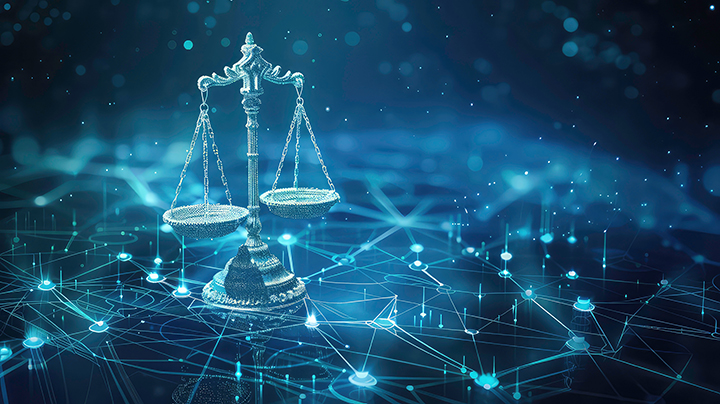lens
Future Lawyers Are AI Ready
Law school is at the forefront with program on artificial intelligence
 Image Adobe Stock/Armstrong
Image Adobe Stock/ArmstrongCase Western Reserve University's School of Law is in the "legal AI" Vanguard.
While other law schools have courses involving artificial intelligence, CWRU's is the first to require all first-year students to be certified by passing a program integrated into the foundational curriculum, said Avidan Cover, JD, a professor and associate dean for academic affairs at the school.
Held for the first time in February, "Introduction to AI and the Law" immersed students in the fundamentals and ethics of using AI in the legal profession's workaday world. It detailed how rapidly state laws involving AI are changing, the absence of federal regulations and what could be on the horizon.
"We're not just keeping pace with innovation, we're setting the standard for the future of legal education," Cover said. "Our AI curriculum not only addresses the demands of a rapidly evolving legal landscape but also empowers our students with the tools and knowledge they need to navigate and lead in a technology-driven profession."
The program is open to students in their second and third years as well as faculty.
For first-year law student Eun Taek (Peter) Kim, the sessions provided a better understanding of AI, hands-on experience with generative AI platforms created for the legal community—and a certification that could provide an edge when applying for jobs.
"It will be helpful to have that tool in my toolbox going out into the job market," said Kim, who wants a career focused on intellectual-property litigation. "I don't think most law students [at other schools] have that background."
Third-year student Léa Cazaudumec Lucas participated to learn more about a technology that has become ubiquitous in society and the workplace. As she prepared to graduate, Lucas said the program "made me more comfortable" and "ready to incorporate [AI] into my legal profession."
The law school developed the certification program in partnership with Wickard.ai, which provides legal AI education and training. The recent training was led by lecturer Oliver Roberts, JD, co-head of the AI Practice Group at the Holtzman Vogel law firm in Washington, D.C., and the founder and CEO of Wickard.ai.
Roberts said, for example, that lawyers conducting reviews during the discovery phase of litigation might need to examine tens of thousands of documents.
But now, AI platforms built for the profession can help expedite the process and flag, for example, which documents should be shared with the opposing side and which must be withheld because of attorney-client privilege.
Similarly, AI tools can be used to help draft contracts and court pleadings, and students had the chance to try them out.
But Roberts stressed that lawyers are expected to disclose to clients how and when they use AI tools—and use only tools deemed reliable by the profession.
"With AI increasingly used in the workforce by law firms … it is important for law students to understand how to use the tools and understand the ethical considerations as well," said Roberts, also editor-in-chief of the "AI and the Law" newsletter at The National Law Review. "CWRU is leading the way."





